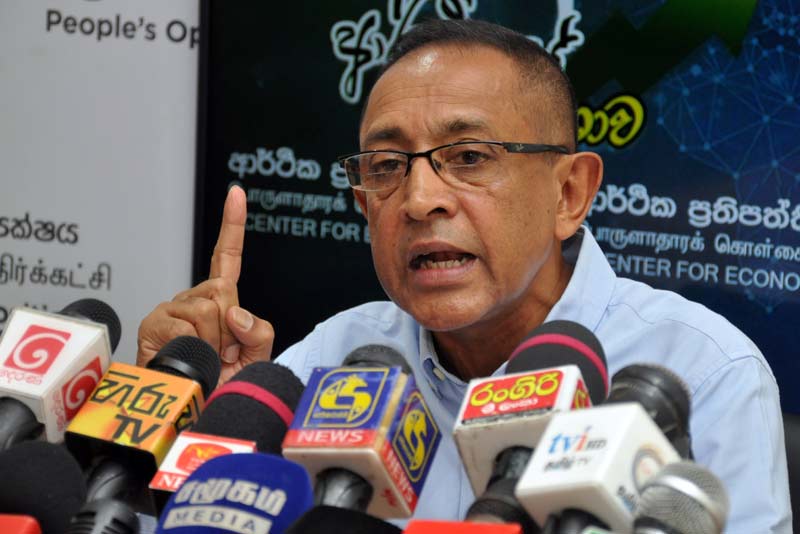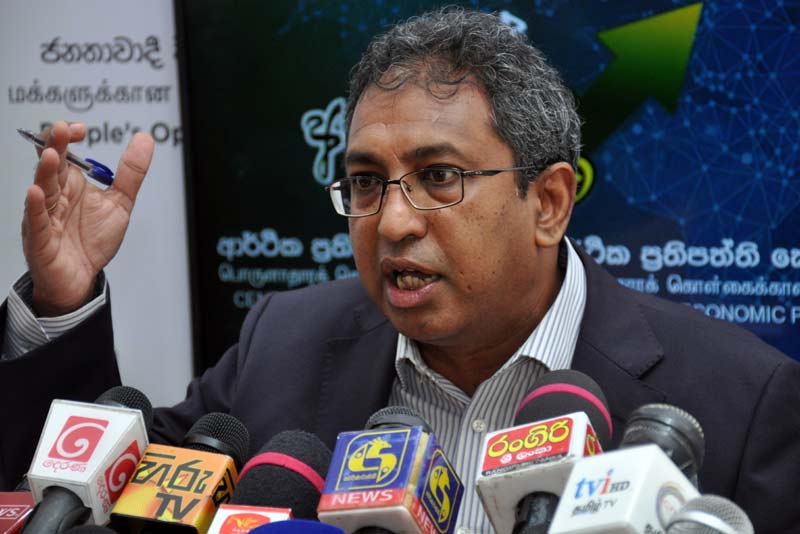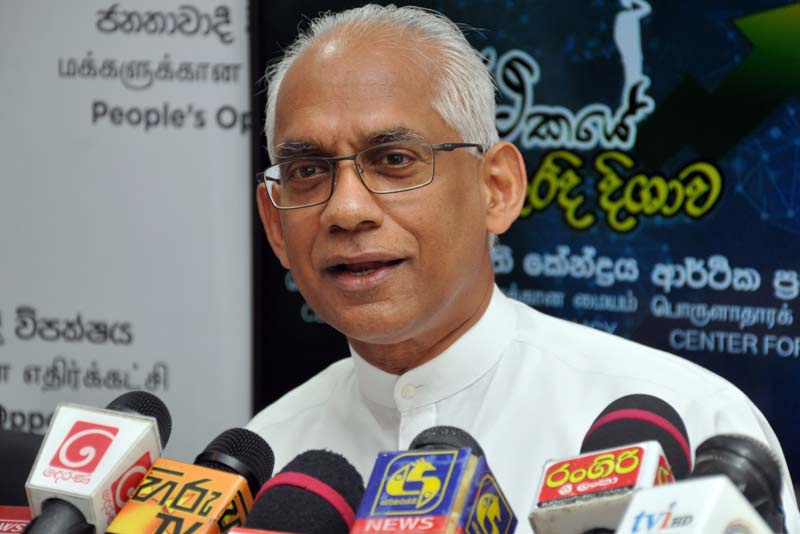Wednesday Feb 18, 2026
Wednesday Feb 18, 2026
Thursday, 4 April 2024 03:43 - - {{hitsCtrl.values.hits}}

SJB MP Kabir Hashim

SJB MP Dr. Harsha de Silva

SJB MP Eran Wickramaratne
By Darshana Abayasingha
Main Opposition Samagi Jana Balawegaya (SJB) yesterday insisted the reform agenda must be progressive and called for greater transparency. The party’s trio of economists addressed a range of pressing issues which the Government has failed to deal with expeditiously.
MP Kabir Hashim called for greater transparency and best practice with energy sector reforms, pointing out that the Government may still find it difficult to let go of old habits that had undone the state sector. Pointing to the Draft Electricity Bill, Hashim said that despite several positives in the proposed regulations, the Minister still retains significant powers that interfere with the independence of faculties such as the proposed Energy Council. He questioned how such a body could function independently when the minister could appoint and remove members to suit his personal agenda.
Hashim added that there is no need to incorporate a National Advisory Council on tariffs and other matters when the Public Utilities Commission of Sri Lanka is already empowered with the necessary powers. “We have made these representations, and the ministry says amendments can be done but we have seldom seen this happen. Some of the proposals give unprecedented power to the Minister regarding appointments. Where is the independence then? The minister can also instruct the regulator on setting tariffs. That should not happen. We must move away from such measures if we are to boost our efficiency and I hope the cabinet will consider these,” Hashim said. The SJB MP added it is crucial for Sri Lanka to revisit energy costs to promote the opportunity for the country to become a manufacturing hub, and noted that some steps taken by the Government towards reform were positive in nature.
Commenting on the proposed 500MW wind farm project in the Mannar Basin with the Adani group, he stated there must be greater transparency with respect to the power purchase agreement. “This project is going outside the tender process as it is a large programme and that could be alright. However, parliament must be kept apprised and agree on payment per unit,” the MP said.
Hashim says reports indicate the agreement to be at USD 0.88 cents. “There are some industry experts who say it could be bought for cheaper. In fact, there is an open CEB Tender for 50MW of wind power that closes on 9 May. This is only a month away. Why don’t we wait until then and use that price as a benchmark to negotiate the Adani deal? We hear the unit price of the CEB tender could be around USD 0.7 cents. That will save Sri Lanka over Rs. 200 billion over a period of 20 years,” the MP pointed out. MP Dr. Harsha De Silva touched on the policy debate and noted Sri Lanka must get itself out of default status to once again become competitive internationally. He noted it is difficult to attract investments when the cost of capital becomes high due to Sri Lanka’s high-risk rating.
“We need to move out of default status and to do that we need to restructure our debt. Some parties are stating they will restructure loans after turning the country around. We cannot wait to do that. There is already USD 3 billion outstanding and we cannot let that grow. This is why the discussions taking place in London are crucial, and the Government has offered a new plan with Lazard and Clifford Chance. Again, some political elements are laughing and claim we don’t need them. But these facilities have been brought under international law and we need international negotiators to represent us. These are the same people bandying about odious debt. How can a country negotiate with such derelict ideas before us,” De Silva said.
MP Eran Wickramaratne joined the discussion to add that no country can be developed by closing itself, and a comprehensive plan must encompass policy with the right people and experience.
“There has to be workable plans.” He touched on political groups over the years having blocked investments into higher education and bandying derelict theories that have failed the world over.
“Sri Lanka has the second-highest percentage of people outside its country in the world. Youth are clamouring to leave, but they are not going to Cuba or North Korea. They are not trying to go to closed countries for better prospects. These bankrupt politicians once said India was bad, and now they are rushing there alongside the US. They must have a proper foundation to negotiate anything, but they lack such experience or capacity. All they know to do is to stand holding a board to protest anything worthwhile that may come,” Wickramaratne opined.
- Pix by Lasantha Kumara